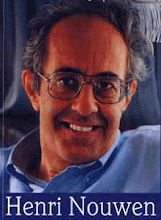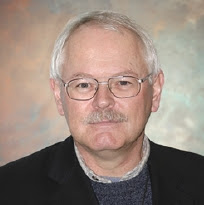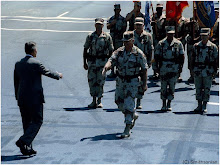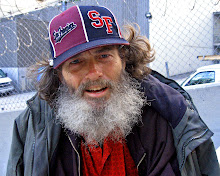 In today’s blog, J.F. shares a reprise of a story written a couple of years ago for Gary’s Downtown Deals - now merged with the Los Angeles Downtown News. (“Deals” is a color glossy coupon magazine in DTLA designed to create jobs for the homeless and raise money for the poor.) J.F. shares the story in hopes it gives readers a sense of the rich history and the cause St. Paul’s under-the-bridges mission is benefiting.
In today’s blog, J.F. shares a reprise of a story written a couple of years ago for Gary’s Downtown Deals - now merged with the Los Angeles Downtown News. (“Deals” is a color glossy coupon magazine in DTLA designed to create jobs for the homeless and raise money for the poor.) J.F. shares the story in hopes it gives readers a sense of the rich history and the cause St. Paul’s under-the-bridges mission is benefiting.THE EXPEDITION
Spending an afternoon feeding the homeless wasn’t exactly what one might expect. Of course, one afternoon does not a statistical sample make, but in this one experience, it wasn’t so much about finding a level of desolation or despair as much as learning to accept homelessness as a part of life that just is.
It is 10:00 am; we meet at the Casa Juan Diego house, a home for homeless young men personally started by Mother Theresa. Today, our hosts are Jack, Blanca, Letti, Josie and Ines. For the last three years, they have gone out every Wednesday underneath the bridges, behind the industrial buildings and into the lives of the homeless people on Skid Row. Earlier in the week, Jack made the rounds to Vons and gathered day old bread, pastries and candies. Letti made sandwiches – over a 100.
Now it is 11:30 am; we venture out into the streets. Jack explains it is not always safe to get out and we should stay in our cars. Jack has seen it all. In between cutting hair for a living, he’s been a military chaplain and a prison counselor. We see all types of homeless. The most common thread among them is substance abuse and mental illness.
What am I observing as I move about in places that most in Los Angeles would dare to go? Despite the filth, drugs, prostitution and violence, many homeless wouldn’t feel comfortable anywhere else. Entrance into a shelter means exposure to more predators than in living under a bridge. A job may mean the crushing pressure of responsibility that those who are mentally ill cannot handle. The rickety, leaky plastic tents, worn clothes three sizes too large or small, the public outhouses that double as a red light district are as home to them as a picket fence is to the rest of us.
It is 3:00pm; five hours later what did I learn? I learned that preconceived notions and prejudices fade like a sunset as you get to know someone else and their situation. We can move them, we can dump them and we can try to “societize” them, but in this one morning and afternoon it began to emerge that we probably can’t cure most. This is a part of life that will always be with us. Sharing even a tiny bit with the poor and vulnerable is a great blessing we both give and receive when we care for those who are less fortunate than ourselves. J.F.
It is 10:00 am; we meet at the Casa Juan Diego house, a home for homeless young men personally started by Mother Theresa. Today, our hosts are Jack, Blanca, Letti, Josie and Ines. For the last three years, they have gone out every Wednesday underneath the bridges, behind the industrial buildings and into the lives of the homeless people on Skid Row. Earlier in the week, Jack made the rounds to Vons and gathered day old bread, pastries and candies. Letti made sandwiches – over a 100.
Now it is 11:30 am; we venture out into the streets. Jack explains it is not always safe to get out and we should stay in our cars. Jack has seen it all. In between cutting hair for a living, he’s been a military chaplain and a prison counselor. We see all types of homeless. The most common thread among them is substance abuse and mental illness.
What am I observing as I move about in places that most in Los Angeles would dare to go? Despite the filth, drugs, prostitution and violence, many homeless wouldn’t feel comfortable anywhere else. Entrance into a shelter means exposure to more predators than in living under a bridge. A job may mean the crushing pressure of responsibility that those who are mentally ill cannot handle. The rickety, leaky plastic tents, worn clothes three sizes too large or small, the public outhouses that double as a red light district are as home to them as a picket fence is to the rest of us.
It is 3:00pm; five hours later what did I learn? I learned that preconceived notions and prejudices fade like a sunset as you get to know someone else and their situation. We can move them, we can dump them and we can try to “societize” them, but in this one morning and afternoon it began to emerge that we probably can’t cure most. This is a part of life that will always be with us. Sharing even a tiny bit with the poor and vulnerable is a great blessing we both give and receive when we care for those who are less fortunate than ourselves. J.F.





















2 comments:
Beautiful article, Joel. Hope to join “Sandwich Builders” next time. J.D.
I'm speechless with your insight. God bless you!
Post a Comment